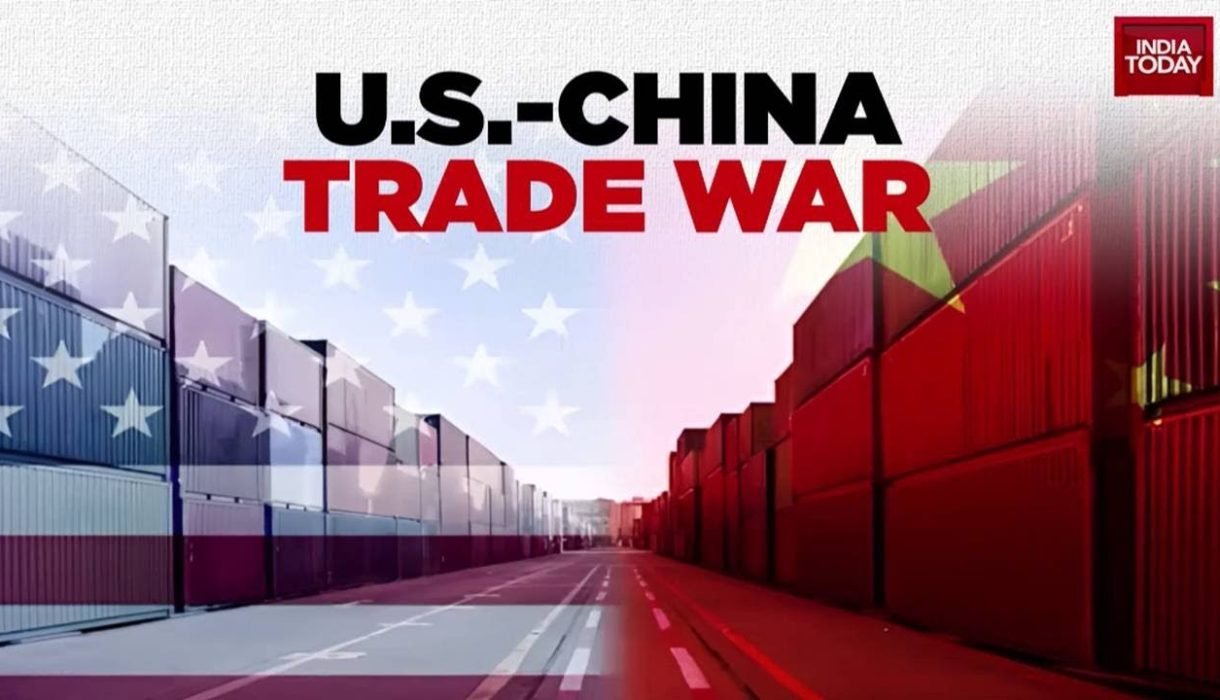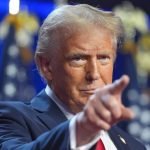
Understanding the Global Impact of US Tariff Policies.
Posted in :
The US’s unilateral tariff policies under Trump are reshaping global trade, straining traditional alliances, accelerating the rise of emerging markets, and threatening America’s leadership role in international economics.
The complex landscape of global economic relations influenced by the US’s tariff policies under the Trump administration, its implications on international relations, and the consequences for both ally and adversary nations.
In a world where headlines shift the balance of power, the recent tariff policies enacted by the US under Trump’s administration have turned heads globally. Imagine a small town where the mayor, through a series of unilateral proclamations, disrupts the local economy without so much as a town hall meeting. This scenario sounds absurd, but it reflects the current state of international trade dynamics where countries are feeling the pinch from different sides. As we delve deeper, we’ll uncover what these policies mean for everyday citizens worldwide and how they shape our economic future.
The Unprecedented Action of Tariffs: A New Era of Economic Warfare
Understanding Tariffs and Their Purpose
Tariffs are taxes imposed on imported goods. They serve multiple purposes. Primarily, they protect domestic industries from foreign competition. By making imported goods more expensive, tariffs encourage consumers to buy local products. This can help create jobs and stimulate economic growth within a country. However, tariffs can also lead to higher prices for consumers. When tariffs are applied, the cost of goods rises, and consumers may end up paying more for everyday items.
But why do governments choose to implement tariffs? The answer often lies in the desire to balance trade deficits. A trade deficit occurs when a country imports more than it exports. By imposing tariffs, governments aim to reduce this imbalance. Yet, this approach can backfire. It can lead to trade wars, where countries retaliate with their own tariffs, ultimately harming global trade.
Historical Context: Comparing Tariff Policies
Historically, tariffs have been a tool for economic strategy. Previous administrations have used them, but the approach has varied significantly. For instance, during the Great Depression, the U.S. enacted the Smoot-Hawley Tariff, which raised duties on hundreds of imports. This move is often blamed for worsening the economic downturn. In contrast, more recent administrations have generally favored free trade agreements, promoting open markets.
However, the Trump administration marked a significant shift. Trump’s approach was unilateral. He imposed tariffs on various imports, including steel and aluminum, without extensive negotiations. This was a departure from the collaborative efforts seen in previous administrations. The goal was to protect American jobs and industries, but the consequences were far-reaching.
Actual Impacts of Recent Tariff Policies
The impacts of these tariffs have been profound. Recent statistics indicate that U.S. tariffs on various imports increased by up to 25%. This has led to significant shifts in trade balances among major countries. For example, estimates suggest a 2.7% growth in U.S. GDP compared to a 5% growth in China’s GDP. This disparity raises questions about the effectiveness of the tariff strategy.
Moreover, around 180 countries have felt the effects of these decisions. Many nations have experienced economic difficulties as a result of the U.S. tariffs. This situation can be likened to a game of chess, where one player’s aggressive moves can destabilize the entire board. The U.S. actions have not only affected its economy but have also created ripples across the globe.
As an economic analyst aptly stated,
“Tariffs are not just numbers; they define the tension in global economic relations.”
This statement encapsulates the essence of tariffs. They are not merely financial tools; they represent a shift in how countries interact with one another. The unilateral nature of Trump’s tariffs has led to a breakdown in traditional diplomatic channels, creating an environment of uncertainty.
In summary, tariffs are a complex tool in the realm of international trade. They can protect domestic industries but also lead to unintended consequences. The historical context shows a shift from collaborative trade policies to a more aggressive stance under the Trump administration. The actual impacts of these tariffs have been significant, affecting economies worldwide. As nations navigate this new era of economic warfare, the long-term effects of these policies remain to be seen.
The World Reacts: From Allies to Adversaries
The landscape of international trade is shifting. The recent imposition of tariffs by the United States has sent shockwaves through traditional alliances. Countries like Canada and Mexico, once considered steadfast allies, now find themselves grappling with the repercussions of these economic policies. The question arises: how did we get here? What does this mean for the future of global trade?
Impact on Traditional Allies
Canada and Mexico have long been integral partners in trade with the United States. However, the introduction of tariffs has led to significant challenges for these nations. For instance, Canada has experienced an approximately 30% decline in lumber imports to the U.S. due to these tariffs. This decline is not just a statistic; it represents real economic pain for Canadian lumber producers and workers.
Mexico, too, faces uncertainty. The country’s electricity exports to the U.S. are now in jeopardy. With tariffs in place, the future of these exports hangs in the balance. The implications are profound. As these nations recalibrate their trade policies, the political ramifications could reshape long-standing alliances.
Global Leaders’ Reactions
Reactions from global leaders have varied widely. Some have expressed concern, while others have taken a more confrontational stance. For example, European leaders have criticized the unilateral nature of the U.S. tariffs. They argue that such actions undermine the principles of fair trade and cooperation.
- China has seized the opportunity to position itself as a champion of free trade, contrasting its approach with that of the U.S.
- European nations are contemplating retaliatory measures, signaling a potential trade war.
- Smaller nations are caught in the crossfire, facing economic instability as they depend on trade with larger powers.
As geopolitical tensions rise, the narrative of affected industries becomes increasingly complex. Countries that rely heavily on exports to the U.S. are now forced to explore new markets. This shift could lead to a realignment of global trade dynamics.
Narratives of Affected Industries
Industries across the globe are feeling the heat. In Canada, lumber producers are not the only ones affected. The agricultural sector is also bracing for impact. Farmers who export goods to the U.S. are worried about losing their market share. The uncertainty surrounding tariffs has led to a decline in investment and growth.
In Mexico, the electricity sector is facing a similar fate. The potential loss of exports to the U.S. could lead to job losses and economic downturns. The ripple effects of these tariffs extend beyond borders, affecting not just the economies of Canada and Mexico, but also the livelihoods of countless individuals.
Political Ramifications
The political ramifications of these tariffs are significant. As countries recalibrate their trade policies, traditional alliances may begin to fray. The U.S. has historically been seen as a leader in promoting free trade. However, the current administration’s approach raises questions about its commitment to these principles.
As geopolitical expert noted,
“In a matter of weeks, trade relationships can dissolve as easily as they were formed.”
This statement rings true as nations reassess their partnerships in light of new economic realities. The complexity of international trade becomes evident as countries navigate the turbulent waters of tariffs and trade wars.
The world is witnessing a dramatic shift in trade relationships. Traditional allies like Canada and Mexico are feeling the brunt of U.S. tariffs, while global leaders react in various ways. The narratives of affected industries and smaller nations highlight the far-reaching consequences of these policies. As nations reevaluate their partnerships and economic strategies, the future of international trade remains uncertain.
The Bigger Picture: Ushering in a New Economic Reality
The concept of a ‘drowning empire’ is not just a metaphor; it reflects a significant shift in global power dynamics. The United States, once the undisputed leader of the world, is now facing challenges that threaten its economic and political dominance. This decline is marked by its inability to maintain relationships that once stood strong. As the historian aptly stated,
“An empire’s decline is marked by its inability to maintain relationships that once stood strong.”
The implications for US leadership are profound.
Examining the Notion of the ‘Drowning Empire’
Historically, empires rise and fall based on their economic stability and trade relationships. The United States is at a crossroads, grappling with its own policies that have alienated traditional allies. The unilateral imposition of tariffs has created a ripple effect, leading to strained relationships with countries that were once considered partners. This situation raises a critical question: Can the US recover its standing, or is it too late?
As the US government enacts tariffs, it inadvertently pushes other nations to seek alternative trading partners. Countries that once relied heavily on American markets are now exploring new alliances. This shift could lead to a significant reconfiguration of global trade networks. The rise of alternative trading partners is not just a possibility; it is already happening.
The Rise of Alternative Trading Partners
China’s GDP growth, reported at 5%, starkly contrasts with the US’s growth of 2.7%. This disparity is indicative of shifting global dynamics. Emerging markets are capitalizing on the disarray caused by US policies. Countries like China, India, and Brazil are positioning themselves as viable alternatives to the US, attracting investments and forging new trade agreements.
As these nations strengthen their economic ties, the US risks losing its influence on the global stage. The question arises: What happens when countries no longer feel the need to align with the US? The answer could reshape international relations as we know them.
Future Outlook: New Alliances Forming in Response to US Tariffs
The future outlook is uncertain. However, it is clear that the possibility of new alliances forming in response to US tariffs is growing. Countries are beginning to recognize that they can no longer rely solely on the US for economic stability. Instead, they are exploring partnerships that offer mutual benefits without the constraints imposed by American policies.
For instance, Canada and Mexico, traditionally seen as allies, are now reassessing their positions. The US’s aggressive tariff policies have prompted these nations to seek alternative markets for their goods. This shift could lead to a more fragmented global economy, where the US finds itself isolated.
Moreover, as emerging markets gain strength, they may begin to dictate terms rather than accept them. This change in power dynamics could lead to a world where the US is no longer the primary player. The implications of this shift are profound, not just for the US but for the entire global economy.
As the US approaches a crossroads in its economic policies, the global landscape is shifting. The rise of alternative trading partners and the potential for new alliances are reshaping international relations and trade agreements. The notion of a ‘drowning empire’ serves as a stark reminder of the consequences of failing to adapt to changing circumstances. The US must reevaluate its approach to trade and diplomacy or risk being left behind in a rapidly evolving world. The future is uncertain, but one thing is clear: the economic reality is changing, and the US must navigate these waters carefully to avoid sinking further.
TL;DR: The US’s unilateral tariff policies under Trump are reshaping international relations and global economics, creating a ripple effect of economic challenges for countries worldwide.
USTariffs, InternationalRelations, TrumpAdministration, EconomicImpact, GlobalEconomy, ChinaTrade
#USTariffs, #InternationalRelations, #ChinaTrade, #TrumpAdministration, #GlobalEconomy, #EconomicImpact,#USTariffs, #GlobalTrade, #TradeWars, #TrumpEconomy, #InternationalRelations, #EconomicPolicy, #TariffImpact, #GlobalEconomy, #EmergingMarkets, #TradeAlliances

